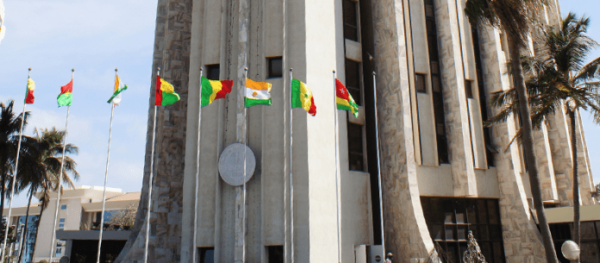Under the chairmanship of Mr. Tiémoko Meyliet KONE, Governor of the BCEAO, President of the sub-regional banking supervision body, the General Secretariat of the Banking Commission organized, on Friday May 21, 2021 by videoconference, the first meeting with the Directors Generals of large-scale Decentralized Financial Systems (SFD) established in the UMOA.
Commonly known as microfinance institutions, MFIs provide financial services to people who generally do not have access to the services offered by banks. Those whose outstanding deposits or loans reach at least 2 billion FCFA are among the institutions subject to the control of the Banking Commission of the UMOA, in the same way as financial companies, banks, financial institutions of a banking nature. and electronic money institutions.
At the opening of the session, the Governor of the BCEAO, Tiémoko Meyliet KONE, underlined in his speech the importance he attached to the microfinance sector. He welcomed the significant contribution of MFIs to the financial inclusion of the populations of the UMOA, in particular, those most vulnerable and generally excluded from mainstream financial circuits.
Over the past ten years, the number of MFI clients has increased from 6.9 million in 2010 to 15.9 million in 2020. The share of the working population using microfinance services has increased to 22% in 2020 against 15% in 2010. Mr. KONE recalled in this regard that the regional financial inclusion strategy, implemented under the aegis of the BCEAO, included a mechanism relating to the reorganization of the microfinance sector.
Indeed, economic development necessarily requires a healthy, resilient and inclusive financial sector. The Governor of the BCEAO therefore insisted on the urgency of cleaning up and strengthening the microfinance sector. This should make it possible to ensure the provision of financial services more suited to the needs of the populations. Taking these concerns into account in the regional financial inclusion strategy, currently being rolled out in the various countries of the Monetary Union, meets this objective.
The BCEAO has thus taken several initiatives to closely monitor some forty large microfinance institutions experiencing difficulties, but which have prospects of viability. It also rolled out a regional capacity building program for SFD leaders in order to improve their governance.
First meeting between the Secretariat of the Banking Commission of UMOA and the General Managers of Large Decentralized Financial Systems
Under the chairmanship of Mr. Tiémoko Meyliet KONE, Governor of the BCEAO, President of the sub-regional banking supervision body, the General Secretariat of the Banking Commission organized, on Friday May 21, 2021 by videoconference, the first meeting with the Directors Generals of large-scale Decentralized Financial Systems (SFD) established in the UMOA.
Commonly known as microfinance institutions, MFIs provide financial services to people who generally do not have access to the services offered by banks. Those whose outstanding deposits or loans reach at least 2 billion FCFA are among the institutions subject to the control of the Banking Commission of the UMOA, in the same way as financial companies, banks, financial institutions of a banking nature. and electronic money institutions.
At the opening of the session, the Governor of the BCEAO, Tiémoko Meyliet KONE, underlined in his speech the importance he attached to the microfinance sector. He welcomed the significant contribution of MFIs to the financial inclusion of the populations of the UMOA, in particular, those most vulnerable and generally excluded from mainstream financial circuits.
Over the past ten years, the number of MFI clients has increased from 6.9 million in 2010 to 15.9 million in 2020. The share of the working population using microfinance services has increased to 22% in 2020 against 15% in 2010. Mr. KONE recalled in this regard that the regional financial inclusion strategy, implemented under the aegis of the BCEAO, included a mechanism relating to the reorganization of the microfinance sector.
Indeed, economic development necessarily requires a healthy, resilient and inclusive financial sector. The Governor of the BCEAO therefore insisted on the urgency of cleaning up and strengthening the microfinance sector. This should make it possible to ensure the provision of financial services more suited to the needs of the populations. Taking these concerns into account in the regional financial inclusion strategy, currently being rolled out in the various countries of the Monetary Union, meets this objective.
The BCEAO has thus taken several initiatives to closely monitor some forty large microfinance institutions experiencing difficulties, but which have prospects of viability. It also rolled out a regional capacity building program for SFD leaders in order to improve their governance.



